Border Crossings: Different states, different rules

When it comes to operating a business with locations or territories in multiple states, franchisees can face several hurdles, some expected, some not. Testing and licensing requirements can differ, tax liabilities can shift, and minimum wages can fluctuate. However, dealing with different rules and regulations is the price some operators are willing to pay to grow their business.
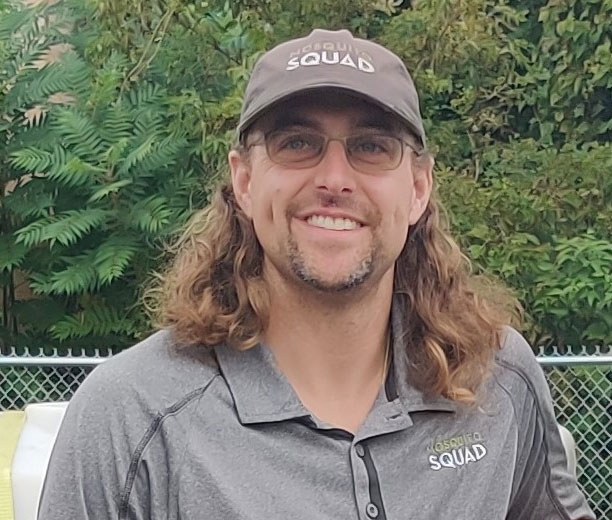
Working out the bugs
In the Northeast, Joe Clark and his family own the franchise rights to four Mosquito Squad territories that straddle two states. “Looking at a map,” says Clark, director of operations for Mosquito Squad of Hartford-Springfield, “there’s I-91, which goes pretty much north and south through our territory, and then we branch off left and right from there.”
The company is based in Agawam, Massachusetts just north of the Connecticut border, so every time its trucks hit the road, the rules change in slight, but significant, ways. “We have trucks that treat for mosquitoes and ticks in both states on the same day,” says Clark. “We try to do it as efficiently as possible.” That means knowing the different rules and training the drivers to follow them.
In 2017, when the family opened the business, they weren’t entirely up to speed about all the paperwork that would be required. “We figured it out before we got into any issues, but it wouldn’t have deterred us,” says Clark. “We’d rather do things the way we’re supposed to than have people from either state come knocking on the door.”
Connecticut and Massachusetts have a variety of different rules and regulations, of course, so Clark says his team simply goes with the rules that are most complicated. “We’ve erred on the side of whatever one is the most restrictive. We’re going to make that our base,” he says. “Once we set the parameters in place, we operate with those.”
To use pesticides in Connecticut, the company needs a supervisor's license, and each individual technician needs a junior operator’s license. In Massachusetts, there’s a different type of license available after taking a relatively challenging test.
“We try to get all of our technicians licensed in both states so we’re not limiting where they can treat,” says Clark. “We can work out one guy’s route so half of the day’s in Massachusetts and half of the day’s in Connecticut, as long as they have both licenses.”
Connecticut requires all businesses to display a registration number on signs, billboards, trucks, and any leave-behind material. It’s not necessary for Massachusetts, but they get it anyway. “We’re required to leave a paper invoice in Massachusetts,” Clark says. “In Connecticut, we can send it digitally, but it makes more sense to just keep doing the paper for both sides.”
When it comes to payroll, employees are taxed for the work they do in each state. Clark puts in the extra time to log each employee’s hours. “They have to fill out a W-2 for both states, so it’s a little bit of a pain,” he says. “But where we live a lot of people work in both states, so they’re used to it.”
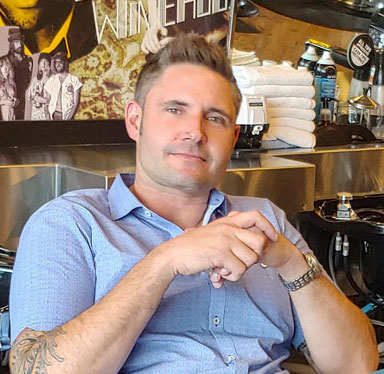
1,000 miles apart
Jay Palmer, who owns 14 Floyd’s 99 Barbershops, says the extra work and red tape necessary to run his business in two states is definitely worth the effort—even though his territories are more than 1,000 miles apart.
Palmer got his start with Floyd’s in Colorado, where he has 11 stores. His other three are in Kentucky, which came about after Palmer got a call from the franchisor about a franchisee who wanted out of the business.
“I made a really lowball offer on the space, and he took it,” Palmer says. “We had about a week and a half to get the store back open.”
It was a busy time of hiring staff and dealing with regulatory hurdles. “Every state has different laws, and Kentucky’s laws—I’m sure there is a reason for what they do—are very difficult to work with,” he says. “Not the people, just the laws themselves.”
In his home state of Colorado, the Department of Regulatory Agencies oversees everything. He can pay a $50 fee online and get a license to operate. “In Kentucky, you have to have a state plumbing inspector come out and make sure the store’s plumbing is safe,” Palmer says. “They also send someone from each board to come out and inspect to make sure you have everything set up properly. So you would have a state barber inspector and a state cosmetology inspector come by and check it out.”
In addition, each store needs a manager with a cosmetology license and a barbershop license. “So if your manager quits, then you lose your license,” he says. “You have seven days to fix it.”
However, the move into a new state also has a significant upside. Kentucky has plenty of available workers. “We’re having a hard time finding staff in Colorado,” he says, “but Kentucky is different. That’s been a relief for us.”
With an area manager based in Kentucky, Palmer says the company is poised for growth. He’s signed a new agreement to build another eight stores in The Bluegrass State.
“Managing from afar, yes, we have some hurdles to climb over, but for the most part, things run pretty smoothly. It’s really turned out to work well,” he says.
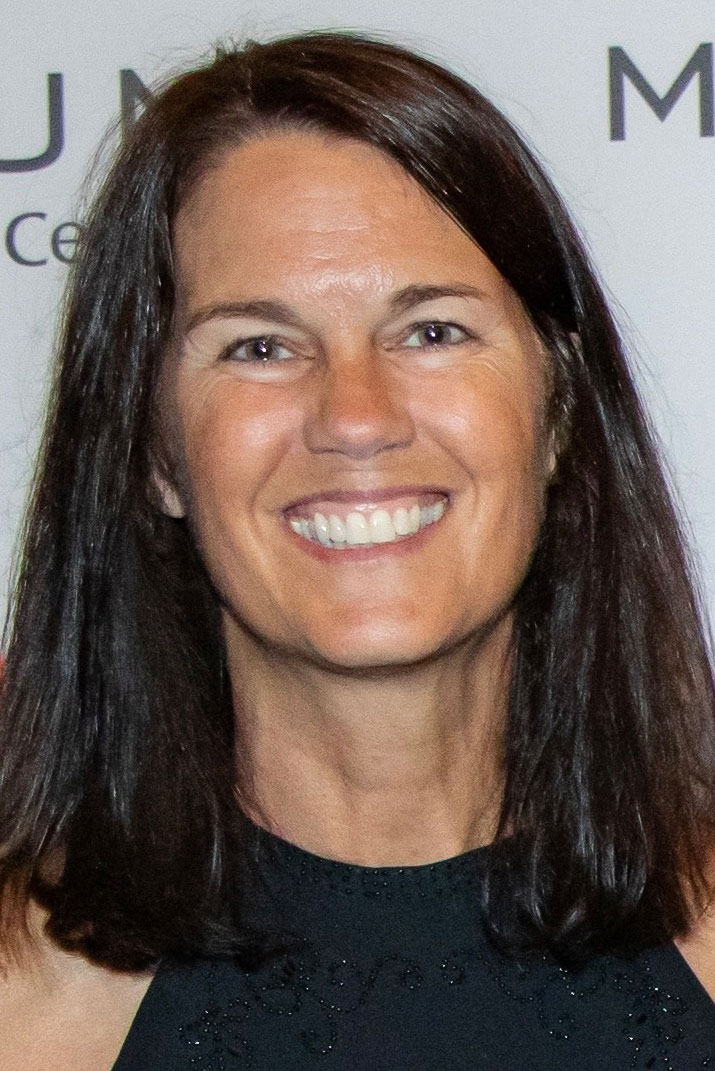
Expect the unexpected
In 2013, Karen Lossing followed her passion and opened her first Mathnasium. What started with one tutoring service in San Diego has expanded to 14 locations across California, Arizona, Colorado, and Texas.
“The first thing that scared me in just owning one location was that if you don’t pay your payroll taxes on time, the fines are significant,” she says. “I never wanted to deal with that, so I decided to hire a third party so we’re always compliant. If they mess something up or something’s lost in the mail, it’s not on me, it’s on them.”
Hiring a third-party vendor alleviates some of the difficulties of working across state lines, but not all. When Arizona raised the minimum wage, she had to redo her annual budget.
“So all of that planning we did meant nothing. We had to readjust everything,’” Lossing says. “Sometimes you get that curveball.”
State lines aren’t Lossing’s only concern. In California and Colorado, some of her locations are considered to be within city borders, while others are considered suburban, which affects how people are paid at different locations. “You really do have to stay on top of those things,” she says.
Lossing’s son oversees the Mathnasiums in Texas, and her daughter has the Arizona territory. A longtime employee was elevated to regional manager in California, so Lossing is free to focus where it’s most needed. “We meet through monthly Zoom meetings, and I visit all of my centers,” she says. “I’m the type of owner who gets on a plane.”
Over the years, the franchise agreements have been changed, and now Lossing, her husband, and their children are included. Their plan is for the parents to step back and let the next generation take over, but Lossing wants to make sure her kids fully understand what they’re getting into and don’t repeat mistakes she’s made.
“You learn the hard way sometimes. We did a buildout where we didn’t realize we had to pay for the HVAC,” she says. “I’d never done that before on six buildouts. I never had to pay for the HVAC. It was always part of the deal, and I didn’t think to ask.”
When encountering unexpected obstacles or other challenges, Lossing says, it helps to reconnect with the passion that led to opening her first Mathnasium. “You’re helping kids and then you see there are more kids who need help,” she says. “We definitely want to continue growing and helping them.”

Infrastructure rules
Gary Avants is president of Avants Management Group in Athens, Georgia. When he opened his first Zaxby’s in 1997, it was the brand’s 17th franchise location. After opening another, he decided that acquiring and building more would be a good way to build a legacy for himself and his family. However, by that point he faced a new problem.
“I waited a little bit longer to grow,” he says. “And when I started to grow, the whole state of Georgia was taken.”
So when he was ready to pursue opportunity, he had to follow it across state lines. His company now has stores in six states: Georgia, Alabama, Tennessee, South Carolina, North Carolina, and Texas. In November, he expects to open his 35th Zaxby’s.
“People say, ‘How do you do it? How in the world can you manage?’” he says. “It’s just having good infrastructure. If you don’t have good infrastructure, it’s not going to work.”
When it comes to managing Zaxby’s locations across six states, modern technology makes it possible to do it efficiently. Avants has access to reports from all his stores and keeps a close watch on what the KPIs tell him.
“We have a lot of things that will warn us pretty quickly if we have an issue,” he says. “If food costs start to go up, it could be a lot of waste; or we have a lot of new people and they’re not being trained in making orders and throw meals away and redo them; or we have some theft with them walking out the back door.”
If labor costs are too low, it probably means not enough people are working during a shift, which hurts customer service. If the labor costs are too high, the manager isn’t doing a good job of scheduling staff, which hurts the bottom line.
“That’s why you must have a good reporting system and good reports to alert you so you can attack these issues quickly,” he says. “I look at them every day.”
If needed, he’ll hop on a plane and visit a problematic or underperforming location. He makes it a point to visit each store twice a year, and members of his family visit quarterly. He also hires a third-party vendor to conduct unannounced inspections. The key to overall success when running more than 30 restaurants in six states, he says, is to have a solid infrastructure of quality people in place.
“We really lean a lot on our district managers. We tell them, ‘Listen, I can’t be out there every day looking at the stores. That’s your job,’” Avants says. “The district managers will do a weekly inspection of each store. It’s their job to visit the stores a couple of nights a week and once on weekends.”
When it was time to grow in a serious way, Avants had to leave the comforts of his home state. Now, he and his family oversee a business that employs 1,100 people and continues to expand.
“We really didn’t have a choice. If we wanted to grow, we had to go to other states,” he says. “It would definitely be easier to be in one place, but it’s been fun, and it’s all we know.”
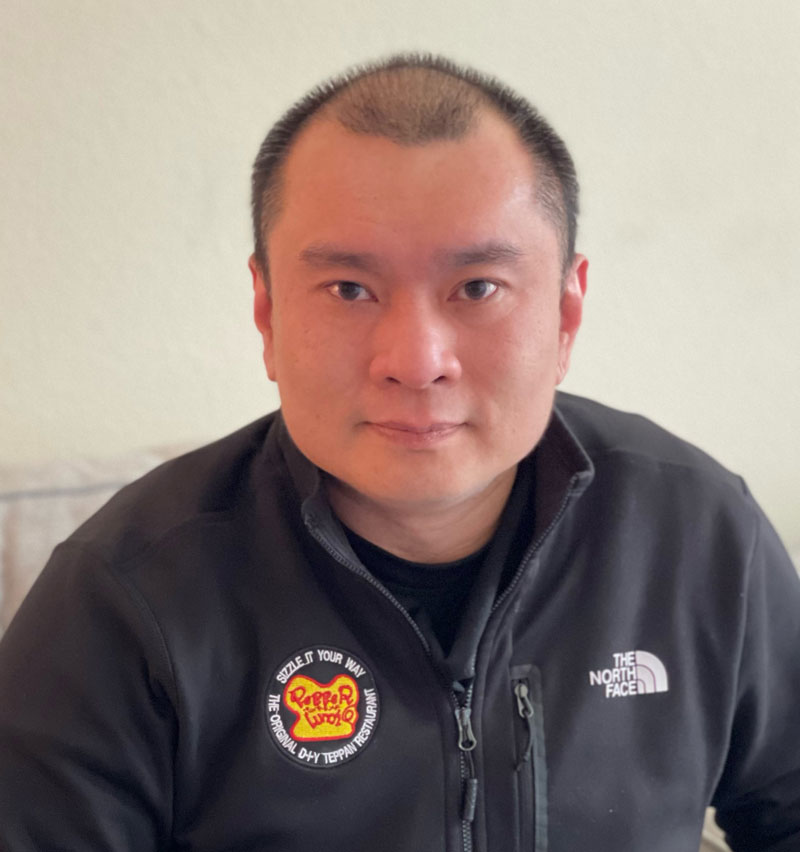
New Country, New Rules
There have been times in every multi-state operator’s life when they wondered what it would be like if all the states had the same rules and regulations. Whether they knew it or not, they might have been thinking about Australia.
“In Australia, it’s not as hard as in the U.S.,” says Adrian Mahendrata, a partner and CEO with Oishii Group Holdings. “In Australia, everything is standardized. All states will have the same health regulations. They will have the same tax rates.”
His company, a Pepper Lunch master franchisee, runs 12 locations in Australia spread out from Perth on the west coast to Sydney on the east. Mahendrata and his partner thought Americans would appreciate a new type of Asian food experience, so they crossed the Pacific Ocean with their concept, which originated in Japan.
“We saw an opportunity in the U.S. There was no one else in the country with Pepper Lunch,” he says. “We were given territory in California and Texas. That’s how it all started.”
However, when opening the first U.S. location in 2018, he was not prepared to find different rules in different states. He later learned that different cities in California also have specialized requirements.
“For Irvine, we had to have an automatic hood system to be on when heat is detected,” he says, “whereas in Alhambra, there is no such rule.”
Even with the additional red tape, the move made sense. Mahendrata has five Pepper Lunch locations in the U.S. and plans to expand further. He says there are two reasons for that. “The first is market size. The whole population of Australia is 27 million, whereas California alone is 46 million. Also, the cost of doing business in America is still lower compared with Australia where we have a minimum wage of $30 an hour.”
Mahendrata makes his life easier by outsourcing payroll and bookkeeping, which gives him more time to travel to his stores and train staff properly . The difficulties of running a multi-state operation in the U.S. are nothing compared with the rewards.
Obviously, we want to grow,” he says. “We’re also looking to bring more brands from overseas and introduce them to the American market. We see a lot of opportunity.”
For Mahendrata, international borders and state lines don’t get in the way of good business.
Share this Feature
Recommended Reading:
FRANCHISE TOPICS
- Multi-Unit Franchising
- Get Started in Franchising
- Franchise Growth
- Franchise Operations
- Open New Units
- Franchise Leadership
- Franchise Marketing
- Technology
- Franchise Law
- Franchise Awards
- Franchise Rankings
- Franchise Trends
- Franchise Development
- Featured Franchise Stories
FEATURED IN
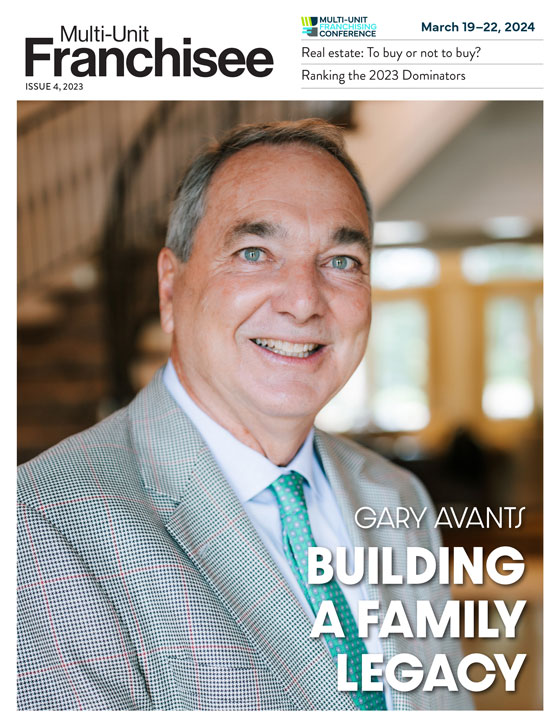
Multi-Unit Franchisee Magazine: Issue 4, 2023

$500,000
$286,727

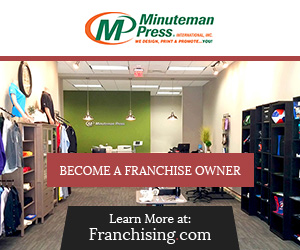



 The multi-unit franchise opportunities listed above are not related to or endorsed by Multi-Unit Franchisee or Franchise Update Media Group. We are not engaged in, supporting, or endorsing any specific franchise, business opportunity, company or individual. No statement in this site is to be construed as a recommendation. We encourage prospective franchise buyers to perform extensive due diligence when considering a franchise opportunity.
The multi-unit franchise opportunities listed above are not related to or endorsed by Multi-Unit Franchisee or Franchise Update Media Group. We are not engaged in, supporting, or endorsing any specific franchise, business opportunity, company or individual. No statement in this site is to be construed as a recommendation. We encourage prospective franchise buyers to perform extensive due diligence when considering a franchise opportunity.